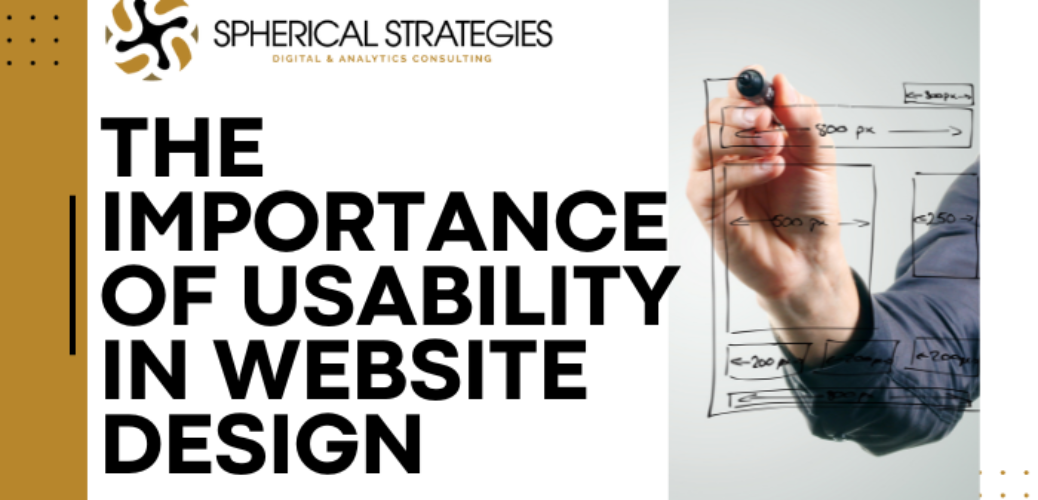The Importance of Usability in Website Design
As the internet continues to play a crucial role in our daily lives, it’s more important than ever for businesses and individuals alike to have a strong online presence. This means having a well-designed website that not only looks visually appealing but also provides a positive user experience.
The overall usability of your website is an essential aspect that can greatly impact how users interact with your site. In simple terms, usability refers to the ease and efficiency with which someone can navigate and use your website. A high level of usability means that users can easily find what they’re looking for, complete tasks quickly and without frustration, and have an overall positive experience on your site.
Why Usability Matters
So why is usability so important in website design? Let’s break it down into a few key points:
- User Satisfaction: A high level of usability leads to a more positive user experience, which in turn increases overall satisfaction. If users can easily find what they need and complete tasks without any hassle, they are more likely to have a favorable impression of your website.
- Accessibility: Usability also plays a significant role in website accessibility. An accessible website means that it can be easily used by individuals with disabilities, ensuring equal access for all users.
- Conversions and Revenue: A well-designed and highly usable website can also have a direct impact on your conversions and revenue. If users are able to navigate your site smoothly and complete tasks without any difficulty, they are more likely to convert into customers.
- Brand Reputation: A poorly designed and difficult-to-use website can reflect poorly on your brand. On the other hand, a website with high usability can help establish credibility and trust with potential customers.
Tips for Improving Website Usability
So how can you ensure that your website has a high level of usability? Here are some tips to keep in mind:
- Simplify Navigation: Your website’s navigation should be simple and intuitive. Users should be able to easily find what they’re looking for without having to click through multiple pages.
- Use White Space: White space, or negative space, is the empty space between design elements on a page. It helps to create a clean and uncluttered layout, making it easier for users to focus on important information.
- Optimize Page Load Times: Users have little patience for slow-loading websites, so it’s crucial to optimize your website’s load times. This includes minimizing image sizes, utilizing browser caching, and choosing a reliable hosting provider.
- Make Use of Call-to-Actions (CTAs): CTAs are essential in guiding users towards desired actions on your website. Make sure they are clear, concise, and strategically placed.
- Conduct User Testing: The best way to ensure high usability is to conduct user testing. This involves having individuals from your target audience test your site and provide feedback on their experience. This will help you identify any areas that may need improvement.
- Keep learning: Usability is an ever-evolving concept, and it’s essential to continuously keep learning about best practices and new trends in website design. Stay updated on industry news and attend workshops or conferences to stay informed.
- Utilize Tools: There are many tools available online that can help you test and improve the usability of your website. From heat mapping to user flow analysis, these tools can provide valuable insights into how users interact with your site.
- Consider Mobile Responsiveness: With so many people accessing websites on their mobile devices, it’s crucial to ensure that your site is optimized for mobile use. This includes having a responsive design and considering the unique needs of mobile users.
- Get Feedback: Don’t be afraid to ask for feedback from your website visitors. This can be done through surveys or even by monitoring comments and reviews on your site. Use this feedback to make necessary improvements and continue to enhance the usability of your website.
Conclusion
In today’s digital age, having a well-designed website with high usability is crucial for success. Not only does it lead to increased user satisfaction and conversions, but it also helps establish a positive brand reputation. By implementing the tips mentioned above, you can improve the overall usability of your website and provide visitors with a seamless and enjoyable experience. So don’t overlook the importance of usability in website design – it can make all the difference in attracting and retaining users. So, take the time to regularly review and improve your website’s usability, and you will reap the benefits in the long run.
Looking for help with your website? Contact us today and let our experienced team of digital marketers help you create a powerful campaign!
 |
About Rene | Spherical Strategies – Senior Marketing StrategistRene works with Spherical Strategies as a Senior Marketing Strategist. She brings a love of business building and decades of marketing experience to every project she works on. Over the past several years she has worked with companies of all sizes developing custom marketing strategies focused on business development and growth. Outside of her work as a marketing strategist, Rene loves to travel and experience food from around the world while encouraging those around her to get outside of their comfort zones. |

